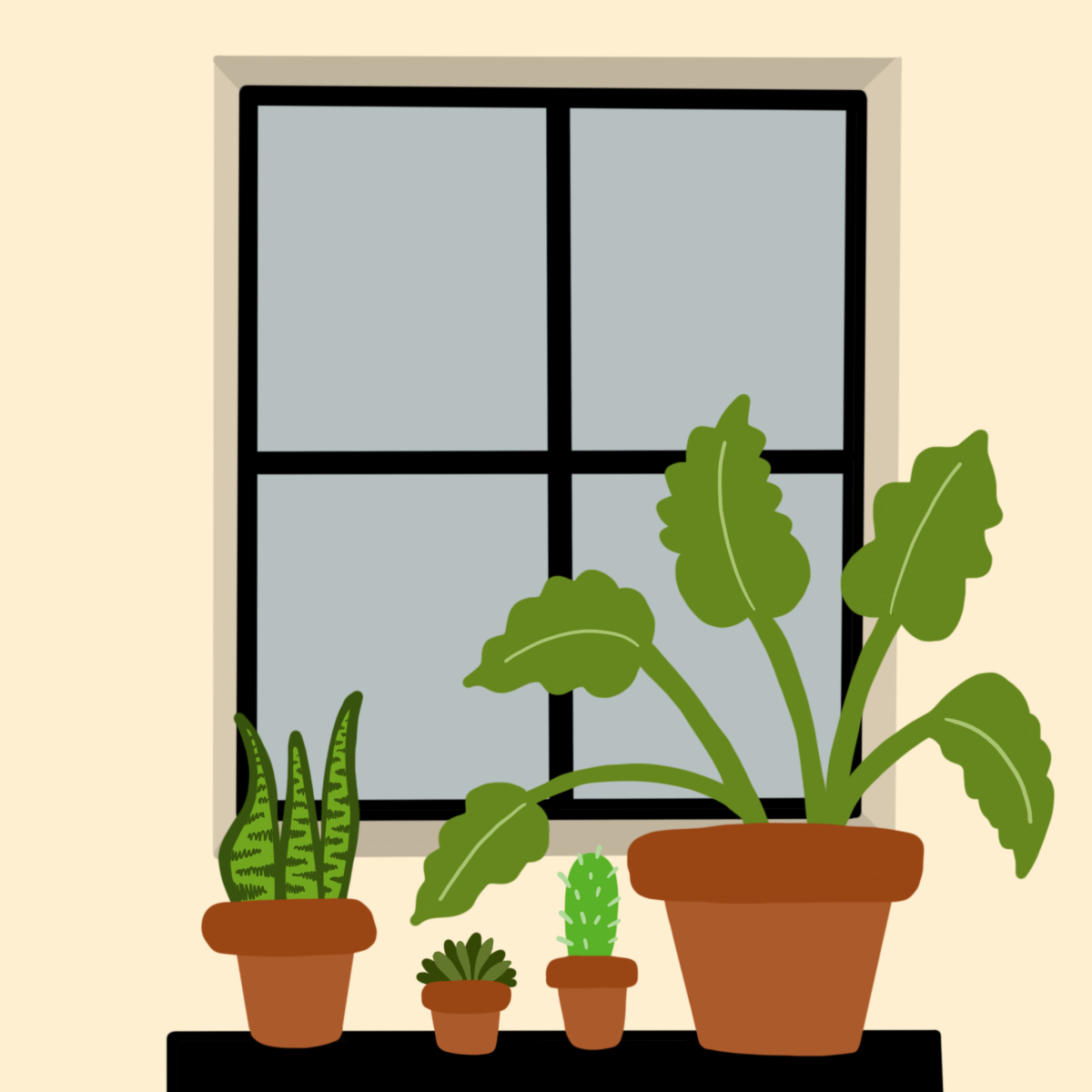Buying the spices and herbs needed to flavor up a dish can be expensive. Various methods to propagate plants like basil, scallions and even carrots exist, and they can easily be grown from inside a dorm.
Students can learn to save money and learn basic gardening skills by growing their herbs in their dorm rooms. It is not as daunting as it may seem, as the process is simply feasible with a little time and dedication.
Propagating a plant occurs by utilizing the stems, bulbs or seeds of a herb. For example, propagating a scallion consists of cutting an inch or two off the end pieces and placing it in a glass or clear container with water. The scallions’ roots should be the only ones submerged, with the rest sitting just outside of the water.
The process of starting a miniature garden in a dorm will cost some money, but the benefits of growing your herbs are insurmountable.
The main benefit is the cost compared to what it takes to grocery shop each week. Typically, students will spend $630-$1,260 on groceries in one semester. Of course, grocery expenses vary by case; however, taking advantage of money-saving habits (such as gardening in your dorm) can largely cut food costs overall.
According to the U.S. Department of Agriculture, the price index for vegetables in grocery stores increased the most out of all food categories in 2019, further strengthening the notion that growing a small vegetable garden benefits college students’ pockets. After purchasing a bushel of onions or carrots, saving and propagating a couple can save money in the long-run. For the most part, the only significant purchase one will have to make will be proper soil—and even that can be affordable, too.
Leafy vegetables, such as lettuce, can be a great addition to a miniature garden. Lettuce, a versatile plant, is relatively easy to grow and only requires sunlight. If the sunlight in a dorm is not the best, it will still grow in some shade. Cherry tomatoes are also good vegetables to grow. Their small stature makes them accessible for a dorm room—however, other delicious herbs and vegetables to grow include basil and carrots.
Gardening in a dorm does not have to be strictly limited to just edible herbs—other plants can provide an aesthetically pleasing look and improve air quality.
Plants like succulents, orchids and roses can purify the air around a dorm and have little to no maintenance required, just a weekly water change. Peace lilies are especially popular due to their sheer ability to purify the air indoors.
A study conducted by NASA has shown that plants can remove airborne mold and pollutants from an enclosed space. This is beneficial to students because their space will have cleaner, fresher air to breathe and provide a better working and living environment. Spending time outdoors is known to boost mental health and a positive mood, but college students often do not have the time to visit their local green space every day. Bringing some greenery inside is a way of overcoming that barrier.
Lastly, students may find themselves consumed with finals and ongoing projects, but waking up each morning to tend to plants can be a motivation and de-stress source. Taking care of something can help them disconnect from their tumultuous day-to-day schedules.
Although a concern for many is the dim light in a dorm room, it is often not detrimental to growing a miniature garden. With a simple window that can gather sufficient sunlight, anything can grow.
As far as potting materials, mason jars, simple clay pots and bowls can go a long way as well. These vegetables and plants are relatively low-maintenance, with most only needing a weekly water change or constant soil that is moist. Andrew Shirey, a junior studying geography resource and environmental studies, believes that the process of gardening is feasible in a dorm room.
“Personally, I didn’t have one in my dorm room as I didn’t cook that much in the dorms, but a few of my floor mates did and had success for the most part,” Shirey said. “If you’re wanting to have a mini garden in your room, make sure you look at the requirements the plant takes to grow and pick ones that will do well in your environment.”
Overall, growing a miniature garden in a dorm room is an act that can save money for college students and would allow them to be more self-sufficient. Without the cost of a weekly grocery trip to get fresh produce, students can find themselves saving money by independently growing their own garden. The benefits outweigh the hassle, for it is a low-cost way of adding a fun routine that can bring joy (and food!) to college students.
– Valeria Torrealba is a public relations junior
The University Star welcomes Letters to the Editor from its readers. All submissions are reviewed and considered by the Editor-in-Chief and Opinion Editor for publication. Not all letters are guaranteed for publication.
Opinion: Gardening in dorms is the way to go
November 11, 2020
Donate to The University Star
Your donation will support the student journalists of Texas State University. Your contribution will allow us to purchase equipment and cover our annual website hosting costs.

























